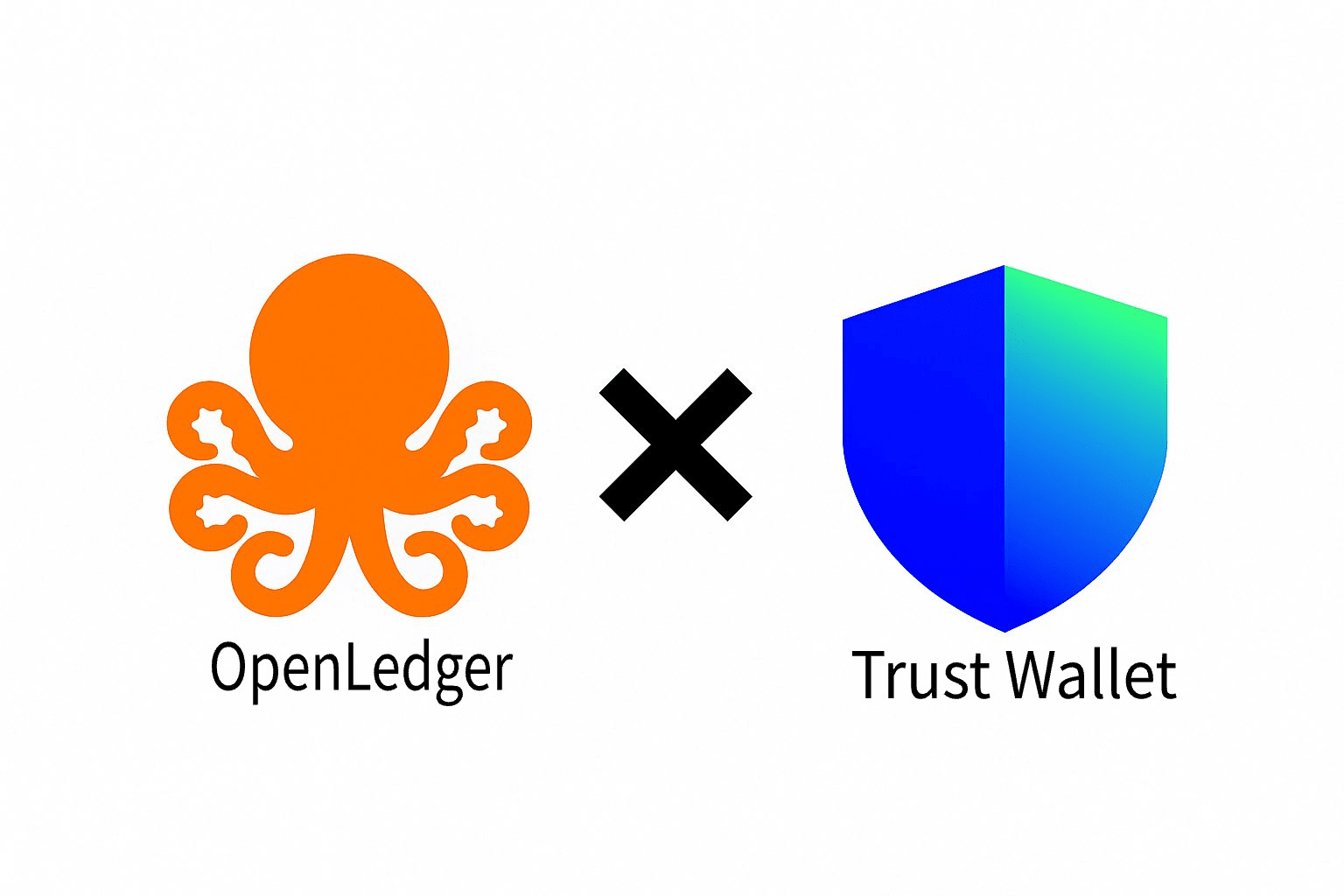Recently, after watching the collaboration interview video between #OpenLedgerHQ and #TrustWallet, I was very excited. This will likely usher in a brand new era of 'behavioral financialization', where experience equals incentive and financial behavior equals incentive, benefiting all wallet users. Let me tell you more about it! 🧐
I probably started using #TrustWallet around 2019. At that time, it was just a standard decentralized wallet for storing coins, participating in #DeFi, and playing with #NFTs. The biggest selling point back then was 'control your own private keys', plus it had the backing of #Binance, so it was indeed my primary wallet at first.

But I haven't used it much in the past two years because the product was too 'static': no continuous incentives, no fresh gameplay, no #AI support, and a lack of community-driven growth mechanisms — just that kind of 'not enough #Web3 feel' cold wallet. Especially when 'semi-custodial wallets' like OKX, Bitget, and Unisat are crazily enhancing user experience and ecosystem integration, #TrustWallet feels more like an 'old bureaucrat'.
But recently, the changes in #TrustWallet have truly made me take a fresh look.
Firstly, it is finally going to implement Trust Wallet Points, which is a points system. Clearly, this is following the path of Binance Wallet, OKX Wallet, and Zerion's 'user incentives + growth tasks'. This approach is particularly suitable for heavy users like me who interact across multiple chains — we already use wallets to participate in various projects, and now we can finally 'complete tasks to earn points'; this is a delayed but necessary transformation.
🎯 More importantly, it recently integrated with #OpenLedger.
#OpenLedger has been familiar to my followers who have been reading my tweets recently. It is a decentralized AI infrastructure project that we have been optimistic about for the past six months, focusing on 'turning your data into assets'. Simply put, it aims to let you use your wallet to:
• Control your own AI behavioral data (search, Q&A, clicks)
• Choose whether to open this data for AI training
• Receive transparent and traceable economic incentives during training
This combined with #TrustWallet will create a very imaginative new scenario: you are not just 'storing coins', but 'making money with your wallet' by contributing behavioral data and participating in AI learning to earn rewards.
Thinking further, this may activate parts of the wallet ecosystem that have never been explored — in the past, we only had 'asset usage rights', but now we are beginning to have sovereignty and rights to the benefits of our data.
The integration of #OpenLedger's Datanet + #TrustWallet may open up a brand new 'behavioral financialization' experience: instead of you looking for projects, every search, use, and question within your wallet is 'participating in the #Web3 AI data economy'.
This is somewhat like a preliminary form of an '#AI Native wallet' — a personal data terminal that is not only used for asset interaction but also records your AI behaviors, learning preferences, and task participation over the long term, bringing you rewards.
I believe this is the true way forward for an old wallet like #TrustWallet:
Transforming from a tool that 'only stores coins' to one that can release the value of your on-chain data and deeply interact through AI, a #Web3 entry point.
In the future, I can even imagine:
• The wallet embeds the Open LoRA model, turning into your personal AI assistant
• Every question, search, and interaction you make will form verifiable data traces
• This data becomes your 'on-chain resume' and 'source of income' in the AI world
#TrustWallet + #OpenLedger = a leap from wallet to #AI wallet. If executed well, this combination could be a new paradigm for 'cold wallets to rejuvenate'. 🧐
